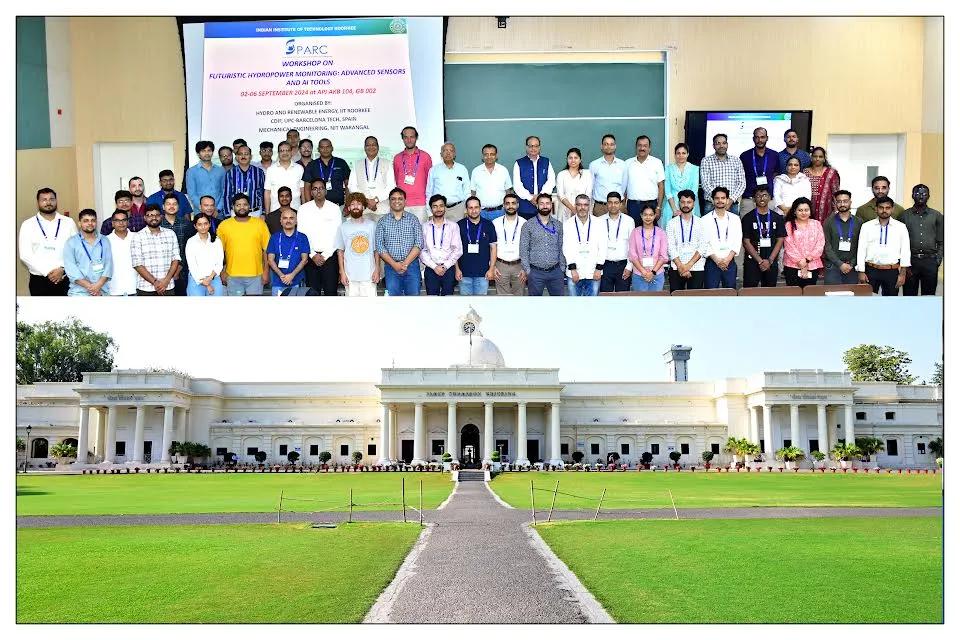Roorkee (The Hawk): Virtual Labs Indian Institute of Technology Roorkee (IIT Roorkee), and the Department of Technical Education Uttarakhand, in collaboration with the National Mission on Education through ICT (NMEICT), organized a Training Program on Virtual Labs for Faculty members from Polytechnic Institutes in Uttarakhand. The aim of this initiative was to introduce educators to the benefits of Virtual Labs, which offer simulation-based experimentation for teaching various scientific and engineering concepts.
The workshop was attended by faculty members from Polytechnic Institutes in Uttarakhand, along with high-ranking dignitaries, including Prof. Umesh K Sharma (Acting Director of IIT Roorkee), Sh. R P Gupta (Director, Department of Technical Education Uttarakhand), Sh. Desh Raj (Additional Director, Department of Technical Education Uttarakhand), Prof. Bhavesh Bhalja (Head of Electrical Engineering Department), and Prof. R S Anand (Principal Institute Coordinator of Virtual Labs at IIT Roorkee).
Prof. R. S. Anand welcomed the participants and emphasized the importance of Virtual Labs in enhancing science and engineering education. Prof. Umesh K Sharma highlighted the role of Virtual Labs in capacity building and skill development for educators, emphasizing their significance in meeting evolving industry demands.
Sh. R P Gupta expressed gratitude to IIT Roorkee for conducting the workshop and stressed the project's goal of providing access to simulation-based labs to overcome the lack of physical lab facilities and trained teachers. Sh. Desh Raj also praised the benefits of Virtual Labs, noting their accessibility and ease of use.
Prof. Ranjan Bose, Director of IIIT Delhi and National Coordinator of the Virtual Labs Project, underscored the transformative potential of Virtual Labs in educational settings and their accessibility around the clock.
The workshop featured interactive sessions where the Virtual Labs outreach team explained various experiments across different disciplines. They aimed to equip faculty members with the knowledge and skills to conduct online experiments effectively.
The development team discussed the model for simulation-based labs and training methodologies for students. They also highlighted the role of development bootcamps and internships. The coding team provided insights into front-end and back-end coding for web pages in the Virtual Labs, emphasizing innovative learning environments.
The event concluded with Prof. R S Anand emphasizing the Virtual Labs project's mission to improve laboratory standards and practical training in engineering and science disciplines across India, promising a revolution in virtual laboratories for educators and students in the digital age.

